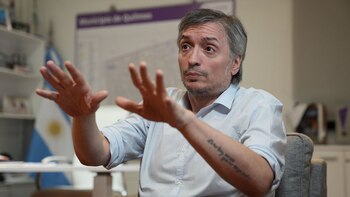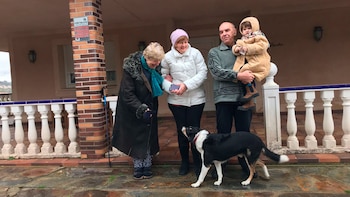
(From Madrid, special envoy) The black clouds crowd in the distance over the sky of El Espinar and the drops begin to fall insolently on the windshield. Already at the Town Hall of this municipality in the Spanish province of Segovia, an hour from Madrid, Ester arrives with her hair splashed and with a warm smile.
She is one of the many Spaniards who, through the NGO Messengers of Peace, welcomed Ukrainian families into their homes. “We do what we can. There are a lot of them in hospitals, a lot of sick people came from Ukraine and there is even a child in detention that we don't know if he will survive. For us it was a lot of reality,” Infobae acknowledges.
More than 3.5 million people have fled Ukraine since the Russian invasion began, and refugees find shelter in small communities across Europe. According to data from the Spanish Ministry of Inclusion, Social Security and Migration, the number of Ukrainian refugees within the Spanish reception system is 12,000 people.
Together with her husband and teenage children, Ester has opened her attic for her - “which is quite large, I have put a couple of beds, a clothes rack and some other things to make them comfortable” - to a mother with a 7-year-old and an 11-year-old. “We have taken them in until they have arranged a house for them in another town, one of those that some families have and that no one used anymore. They offered them and paid them electricity, water, heating.”
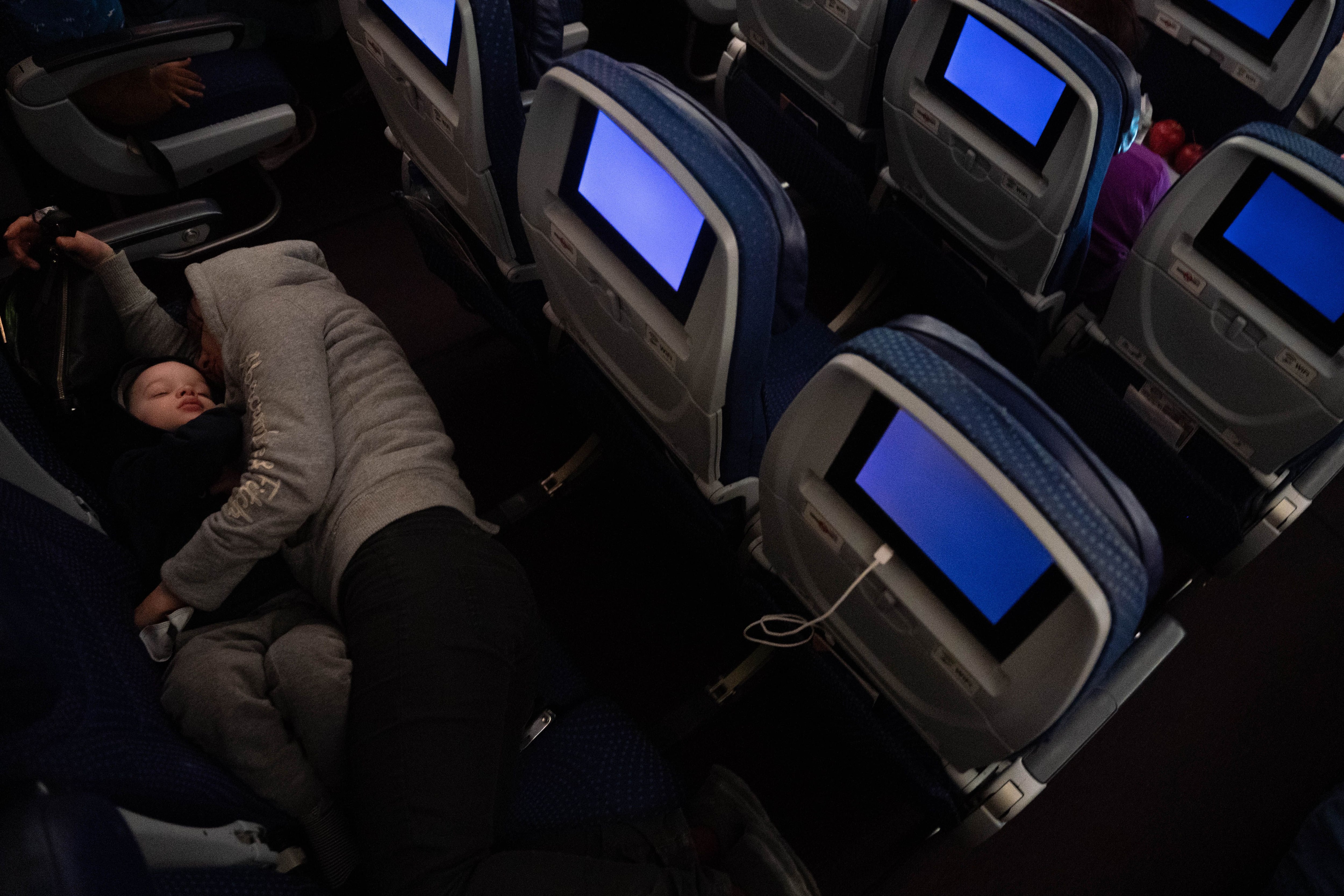
“It was an experience that is not all pink, because of the emotional situation of the family, things I hadn't thought about. The 11-year-old boy looked at the world in a way... For a day and a half he hadn't smiled yet, but when he saw that we had prepared his backpack for school he smiled. I remember it and I get excited, because I scold my daughters who don't want to go and this boy thought about school and he saw himself again having a normal childhood and life. That was still possible.”
He pauses for a moment and as if he could not restrain himself exclaims: “The woman came with a backpack that was like for a laptop. She had a life there like mine.”
And suddenly she remembers: “I have a Tik Tok in which I post funny videos of my dog, and we realized that she had been following me a year ago because she had been amused by a video. Who was going to say that after a year this family that followed me on networks was going to end up in my house. What is destiny like...”.
The conversation is interrupted by the arrival of Igor, a Ukrainian who lives in El Espinar and who arrived in Spain in 2007. During this month he became a key figure among the villages of the area by acting as an interpreter between locals and refugees, and by spending every day at least one Ukrainian family to help them do paperwork.
Igor and Ester lead the way to San Rafael, a nearby village where the house of Conchi and José Luis are located, two from Madrid over 70 years old who left the big city for the quiet life, and who now welcome a couple of Ukrainians: Leonid, 66 and Nuri, 64.
“We don't understand each other, so we don't argue”
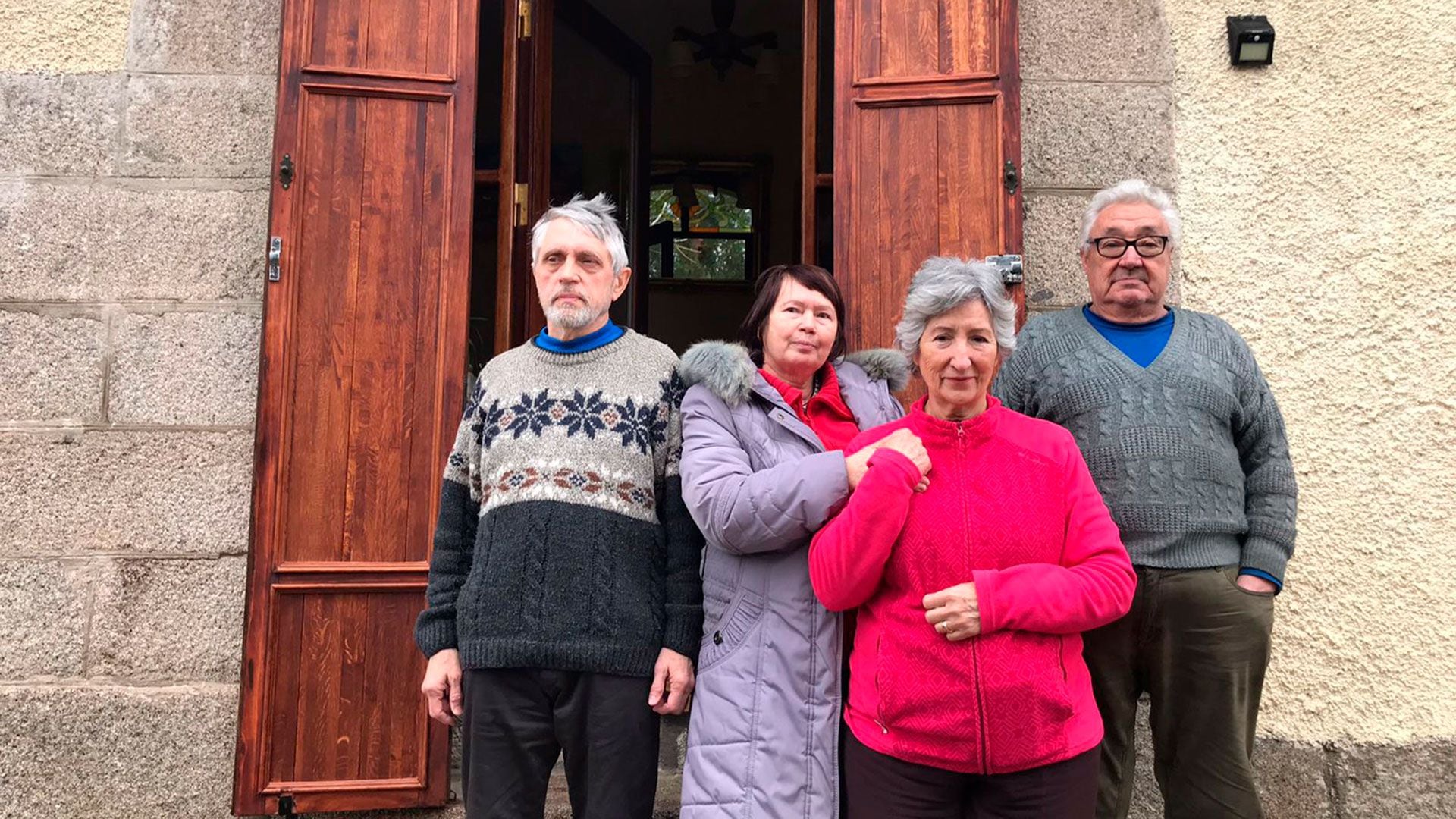
Nuri smiles calmly, on her feet she wears slippers with hearts. Conchi has similar ones, but with some penguins. In recent days they have become cronies and talk to a mobile phone translation app. They communicate as they can. Conchi cooked the other day a paella that Nuri proudly shows on her cell phone; and another day it was her turn to delight her hosts with a dish from her homeland.
“We came from Kharkiv a week and a half ago,” says Loenid, while his wife shows a photo she took showing damage in the neighborhood where she lived. She adds: “They were bombing very close. The house next door had a crater in the land of a missile. We thought we were going to drop a bomb in our house and that we wouldn't have time to leave, that's why we left. For days we were without heating, water or electricity. We lived in permanent fear.”
200 meters from where they lived, all the windows of a nine-story building blew up. Some of his neighbors went out to buy bread and never returned: they died after the impact of a missile.
They never thought they were going to have to make that decision to leave Ukraine. “It was difficult but instantaneous.”
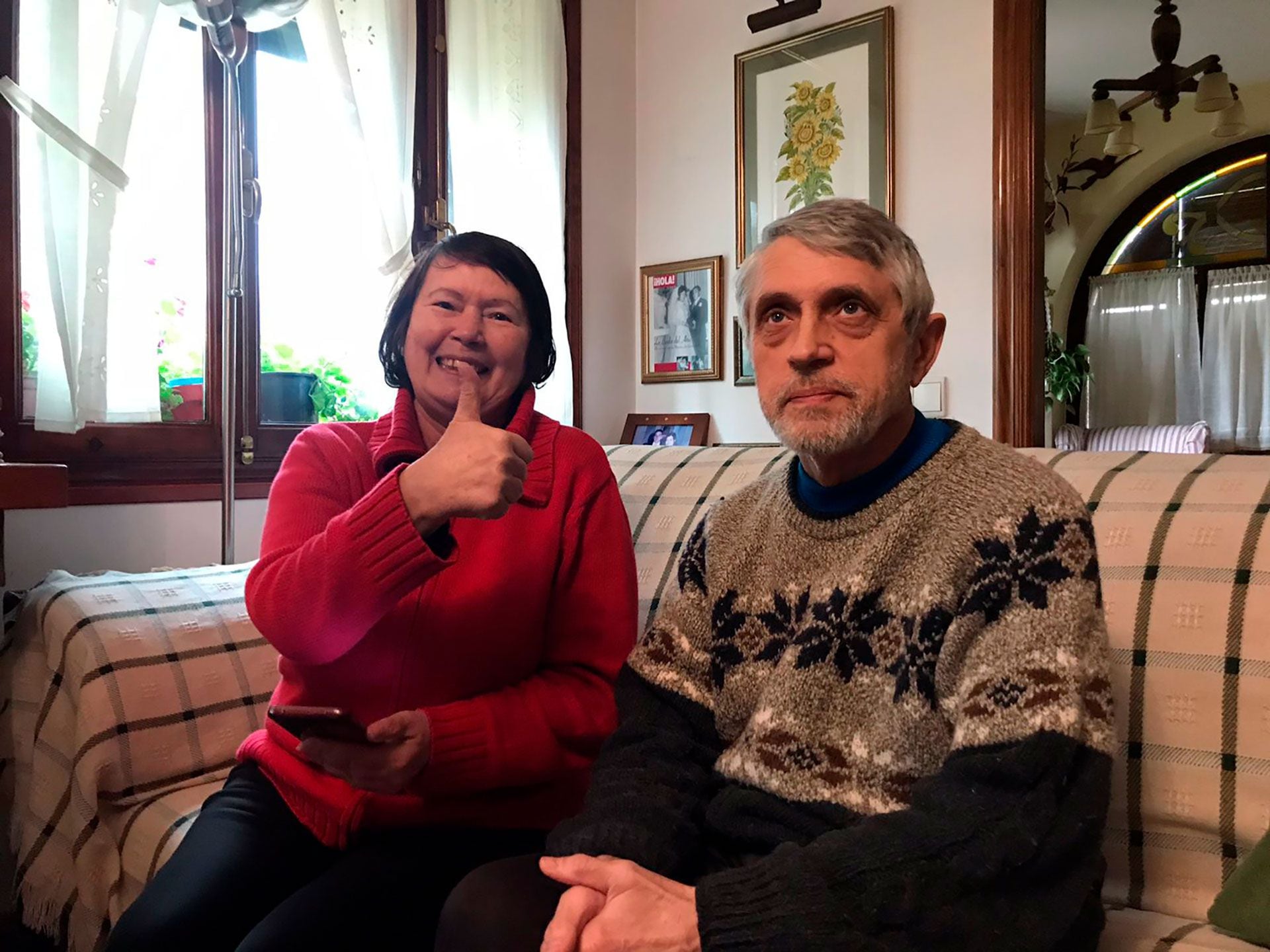
The journey seemed eternal. “We traveled by train 24 hours to Warsaw. We were standing and crowded for a long time, so we didn't carry luggage, because they told us he wasn't going to come in. Then we took a plane to Spain, it was a three-hour flight. And we finally arrived here, where we are very comfortable.”
“Gone are her son, her 7-month-old pregnant daughter-in-law and her other little grandson,” Igor translates to us. “They are afraid to leave because of the risk involved in leaving the country under such conditions.”
Nuri breaks down at various points in the talk and Leonid comes to his rescue, but soon he too gets excited: “I want to tell my Ukrainian brothers who are still there that they must continue to have strength; we are very worried about you.”
“We just want everything to end quickly, without so many victims”, cries Nuri, and Leonid intercedes: “Russia said we are the same Homeland; now there is no return: we are forever separated. This is an extermination. They kill and kill people.”
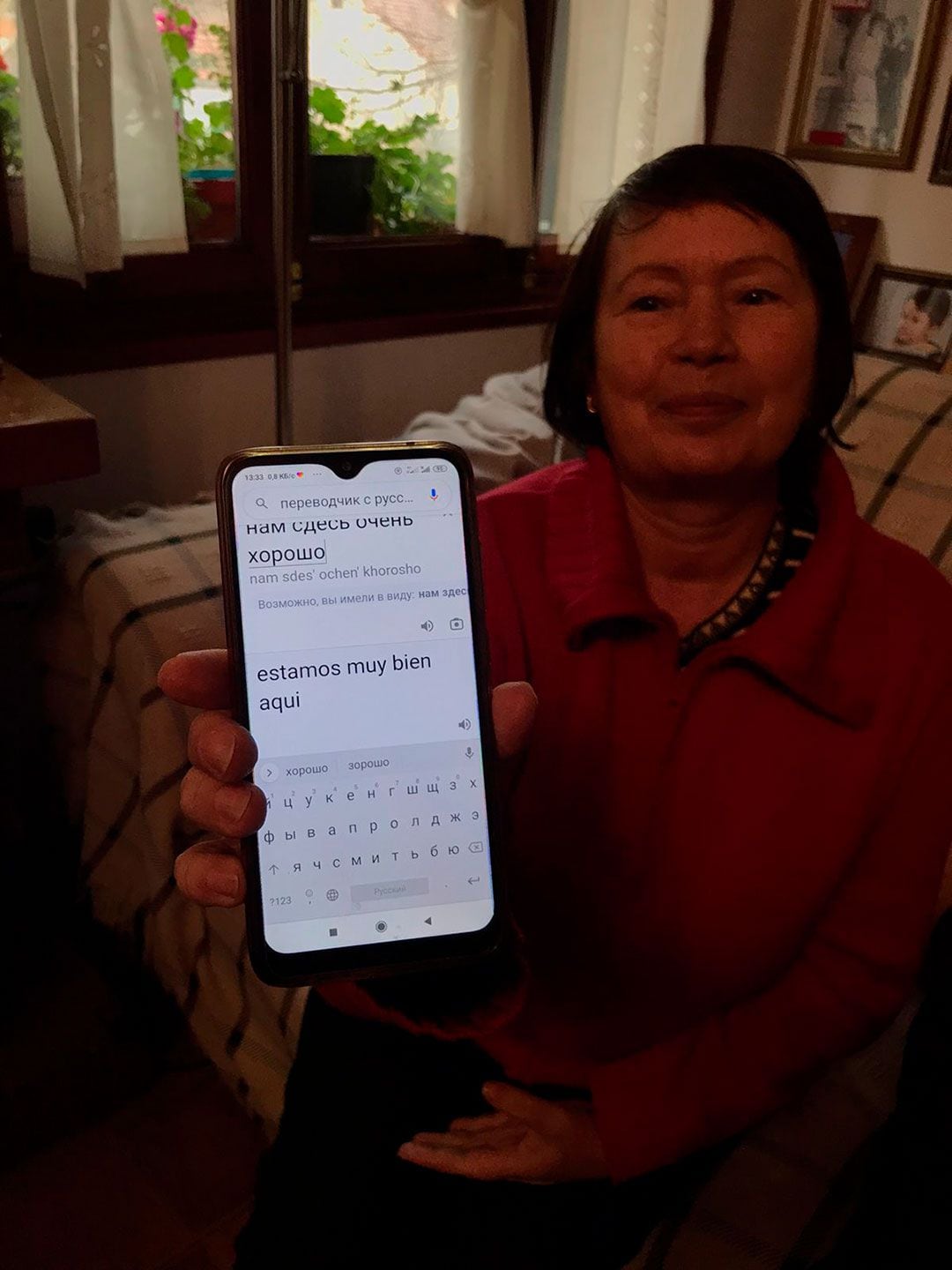
At first they didn't know where they were going to live or what their life was going to be like in Spain, but they soon understood that with Conchi and José Luis they had found the calm they were looking for. They've been married for about 50 years. “And another 7 of boyfriends,” she clarifies, and adjusts the sweater to her husband so that it looks good in the photos.
“Well, we found out through a friend that they were asking if there were people available to take in and we no longer have our children living here, we said, we can”, say Conchi and José Luis Suma, seeing their wife starting to cry: “Our children told us ahead and that we count on them for whatever we need. The reality is that we get along well with Nuri and Leonid. We don't understand each other, so we don't argue,” he jokes.
“We want them to be able to see their family again, be at home. May the war be over and they can be at peace. If it happens to them, what prevents it from happening to us?”
“When the bombs rang, I told my daughter it was a storm or fireworks.”
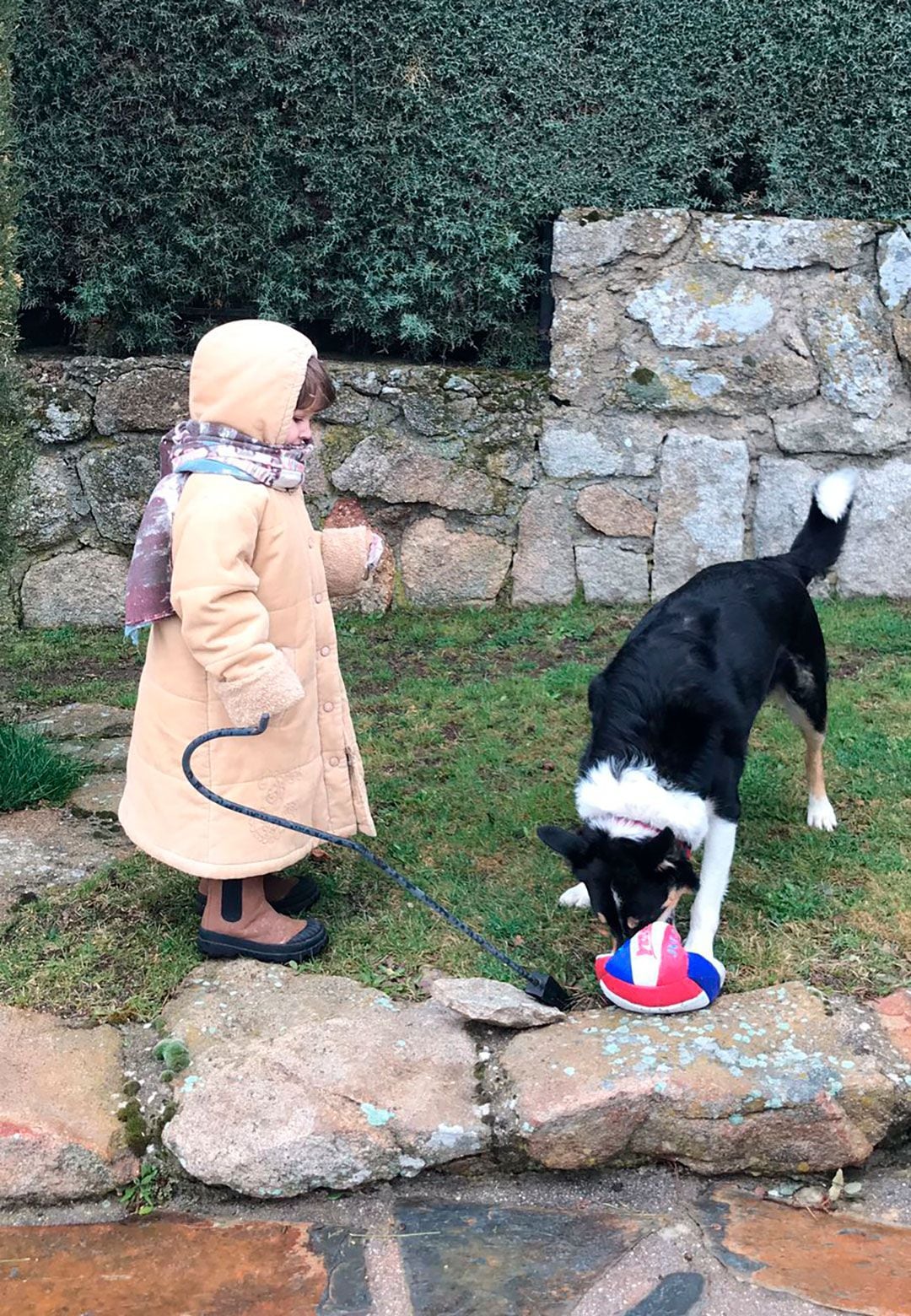
A girl plays in the pasture. He takes a deflated blue, red and white ball and throws it a few inches away. A dog that responds to the name “Lau” grabs it with her teeth and puts it on her feet so that she throws it again. The girl laughs and laughs.
Los Angeles de San Rafael is another town in the same municipality. There they meet Kateryna with her daughter Olga, her son-in-law Faig and their daughter, Alisa, who is only 3 years old. They arrived in Spain from Kiev on March 12. A family living in Madrid has given them their summer home and left Lau company. As with Nuri and Leonid, Kateryna explains that the decision to leave “was quick but very difficult”. “I had no doubt that I was going to go anywhere in order to accompany my daughter and granddaughter.”
“In Kiev there are not many victims yet, but there is a lot of rubble. We don't know what our house will be like when we get back. We don't know if it will continue to exist.”
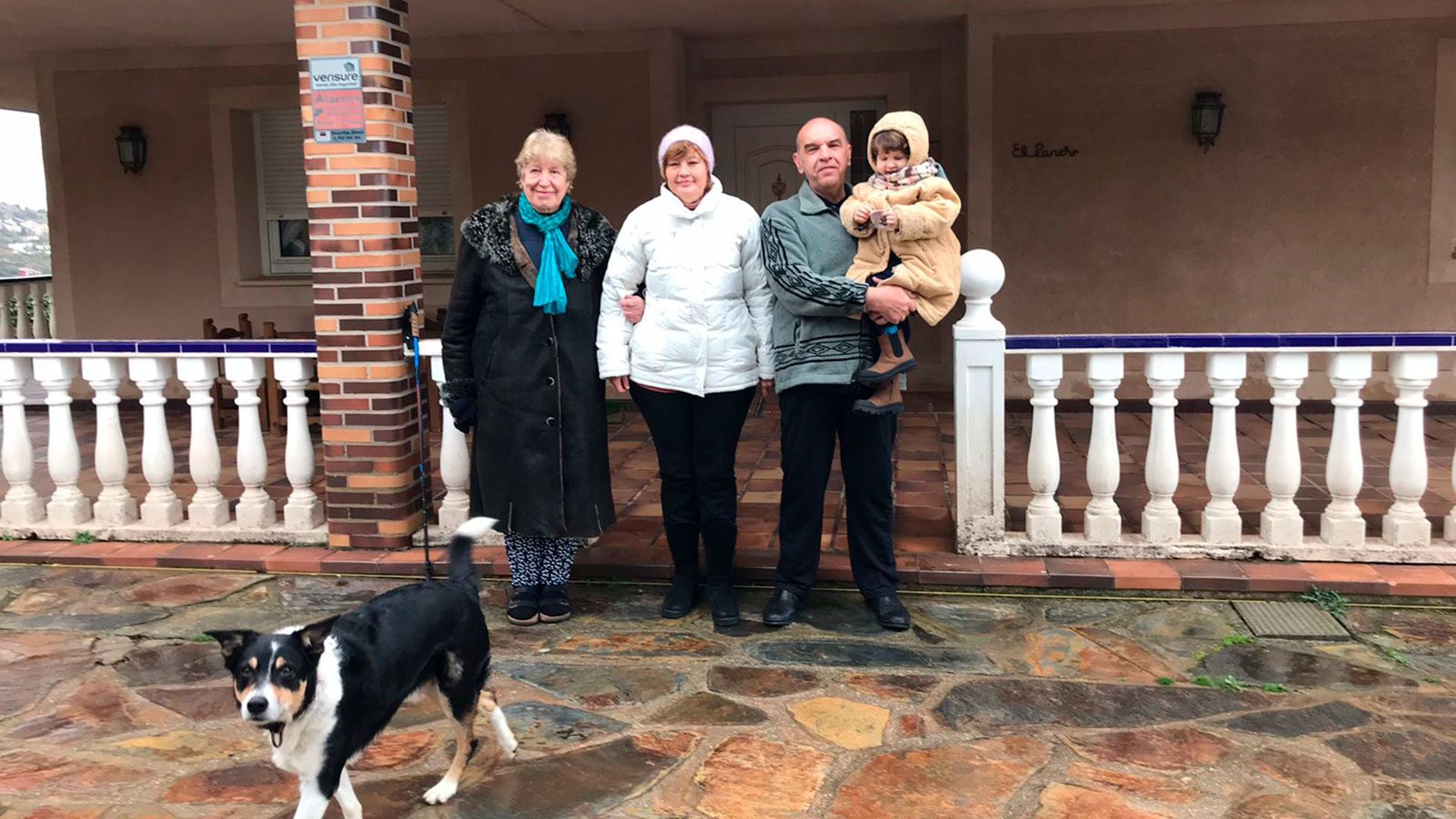
Olga is a school teacher and says that the worst part of the trip was seeing her daughter suffer: “It was very difficult for her physically and emotionally. I had no appetite, I didn't eat. I notice a change in her, she is more closed, she was always more extroverted and now not,” she says as she stroked her cheeks.
He remembers the hardest moments, when Alisa heard the explosions and trembled “He was running away. The windows broke and she asked what was going on. I had to tell him it was a storm or fireworks because I couldn't explain to him what the sound of bombs was.”
Her husband, Faig, is a former military man. “I lived through a war in Azerbaijan. I know what war is like but I didn't imagine this in Ukraine. Putin is destroying the country. It doesn't fit in my head.”
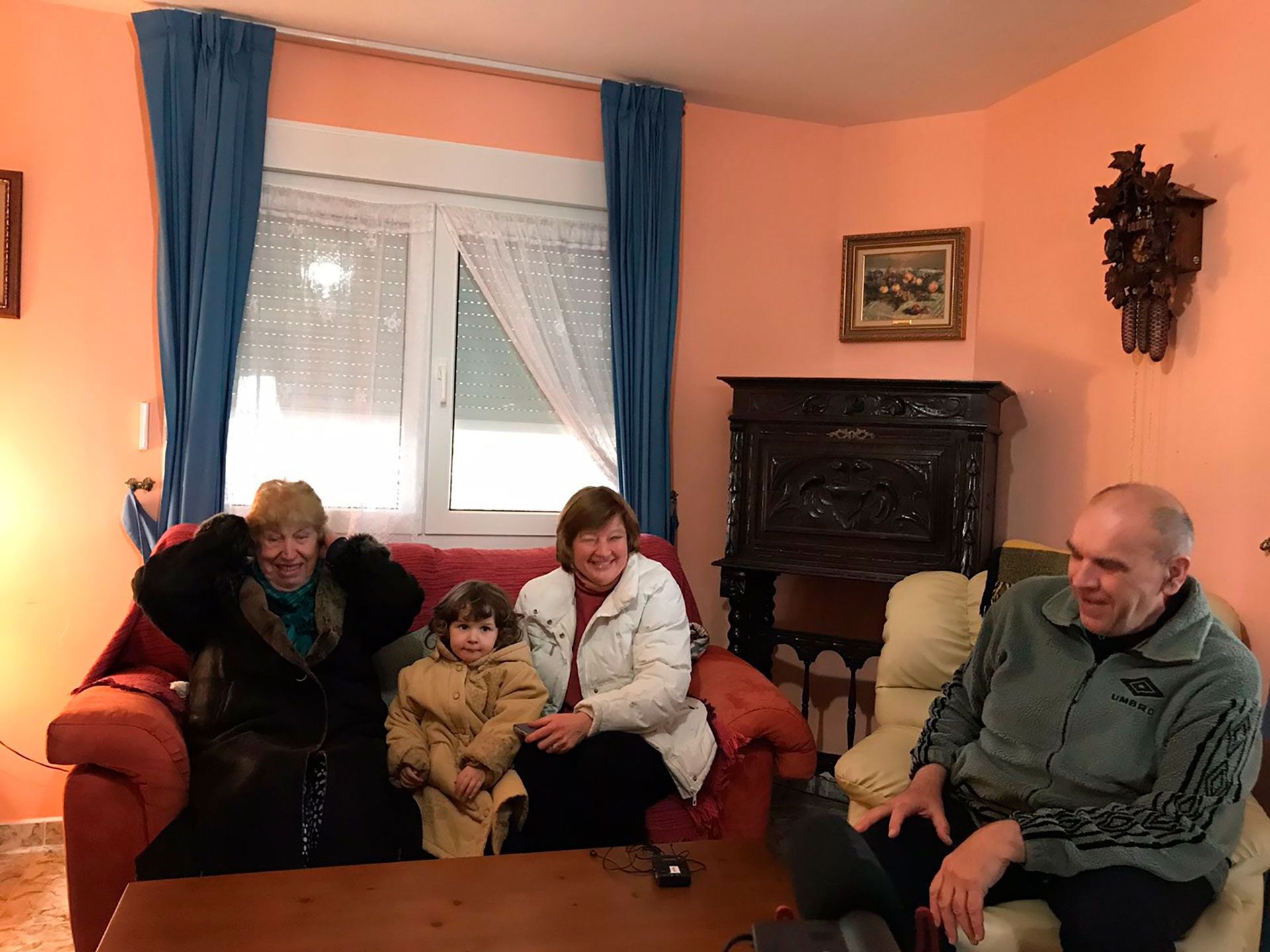
They spent three days in a refugee center in Warsaw. “It wasn't a good place,” says Faig. “You couldn't sleep, even though the food was good. We decided to come to Spain because the climate is milder, it's not so cold and for the girl it was better. “We took a plane and the truth is that we didn't know what we would encounter. We were so surprised and moved by such generosity. This house has a large green space for the girl to play. We can't believe it.”
But soon his countenance is overshadowed: “I think the war is going to go to Europe. It's not going to stop with Ukraine. That's why the world has to think hard. “Everyone has to realize that this guy is insane,” Igor translates. They look at each other and they nod.
On the threshold of the house, the family of four poses for a photo. The dog is running. Right now, they're a crowd.
Martina Putruele: Photos
KEEP READING:
Últimas Noticias
Debanhi Escobar: they secured the motel where she was found lifeless in a cistern
Members of the Specialized Prosecutor's Office in Nuevo León secured the Nueva Castilla Motel as part of the investigations into the case

The oldest person in the world died at the age of 119
Kane Tanaka lived in Japan. She was born six months earlier than George Orwell, the same year that the Wright brothers first flew, and Marie Curie became the first woman to win a Nobel Prize

Macabre find in CDMX: they left a body bagged and tied in a taxi
The body was left in the back seats of the car. It was covered with black bags and tied with industrial tape
The eagles of America will face Manchester City in a duel of legends. Here are the details
The top Mexican football champion will play a match with Pep Guardiola's squad in the Lone Star Cup

Why is it good to bring dogs out to know the world when they are puppies
A so-called protection against the spread of diseases threatens the integral development of dogs


